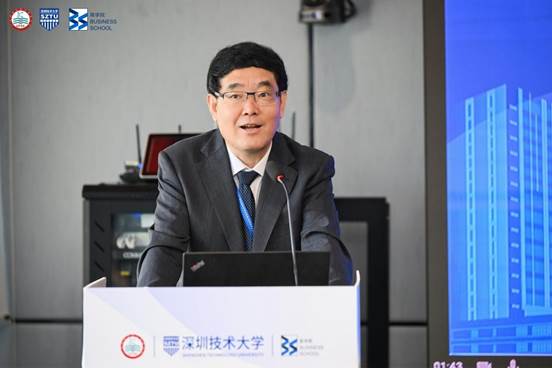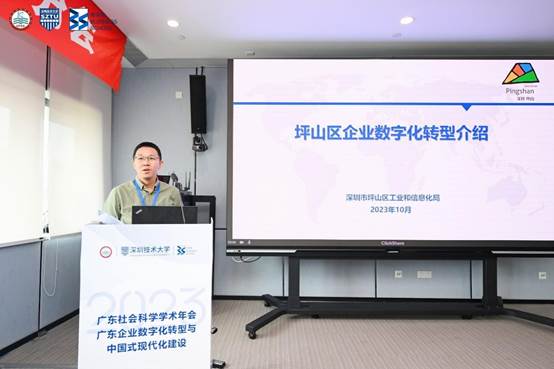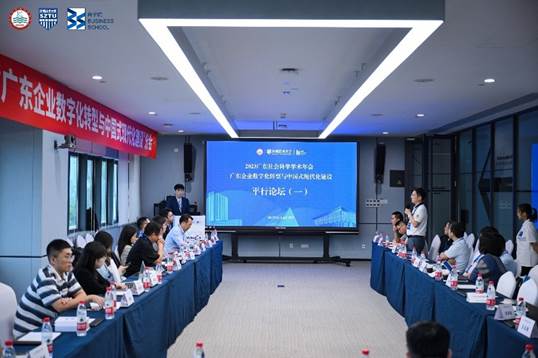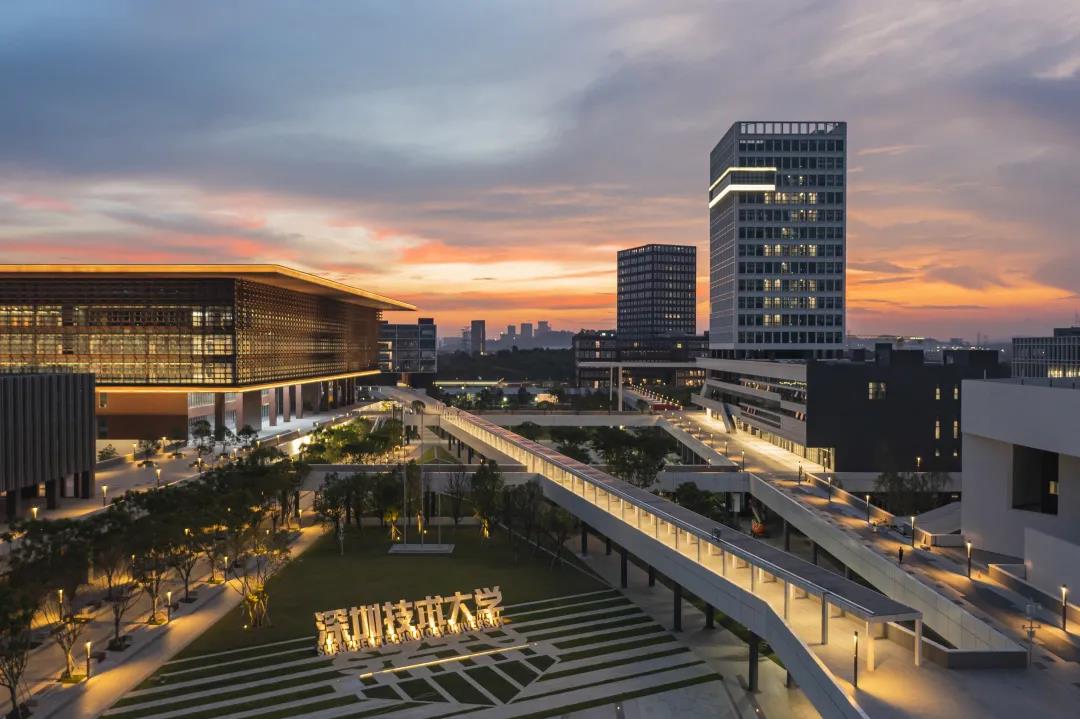On October 28, the sub-session of 2023 Guangdong Social Sciences Annual Conference themed “Digital Transformation of Guangdong Enterprises and China’s Modernization” was held at the International Academic Exchange Center of Shenzhen Technology University (SZTU). More than 160 experts and scholars from higher education institutions, research institutes, government agencies, and enterprises all over China gathered together to share the latest research achievements on the given theme.

The sub-session of 2023 Guangdong Social Sciences Annual Conference is held. [Photo/Business School]
The session was attended by Prof. Ruan Shuangchen, president of SZTU; Ning Zhenbo, lead consultant for the Center of Information Technology, Aviation Industry Corporation of China and independent director of China State Shipbuilding Corporation; Li Yunchao, executive vice president of Federation of Shenzhen Industries and secretary of the Joint Party Committee of Shenzhen Advanced Manufacturing Industry Associations; and Liu Jiru, chairman of Shenzhen Junlan Electronic Ltd.

Prof. Ruan Shuangchen delivers a welcome speech. [Photo/Business School]
Prof. Ruan introduced in detail the internationalization concept of SZTU that benchmarks German and Swiss universities. He hoped that through this academic session, the theory and practice of Chinese path to modernization would be promoted, the contact and exchange with domestic and foreign peers would be deepened, the cooperation between universities and enterprises would be strengthened, and the high-quality development of SZTU would be promoted to a new level.

Prof. Holger Haldenwang, honorary dean of SZTU Business School, gives a speech. [Photo/Business School]
Prof. Haldenwang said that digitalization plays an important role in the progress of human society. He hoped that with the help of this session, the academia and enterprises would work closely together to promote the development of digital economy and Chinese path to modernization.

Mr. Ning Zhenbo delivers a keynote speech titled “The Core Logic of Industrial Digital Transformation”. [Photo/Business School]
The event also invited four guests to give keynote speeches. Mr. Ning pointed out that intelligent manufacturing is based on digitalization and supported by software and models. Industrial software plays a crucial role in digital transformation process.

Prof. Wang Baobao from Xidian University gives a presentation on “Research on Mathematical and Logical Models of Enterprise Digital Transformation”. [Photo/Business School]

Mr. Yu Minqiang, member of the Party Group and deputy director of the Industry and Information Technology Bureau of Pingshan District, Shenzhen [Photo/Business School]
Mr. Yu delivered a keynote speech titled “Introduction to Enterprise Digital Transformation in Pingshan District”. He elaborated on the overview, economic data, “20+8” industrial development, and local industries of Pingshan District. He also shared new ideas for digital transformation in Pingshan such as strengthening industrial policy guidance, building an industrial Internet public service platform, and setting a benchmark for digital transformation.

Prof. Li Fan, doctoral supervisor and deputy director of the China Center for Special Economic Zone Research of Shenzhen University, president of the Rural Revitalization Research Institute of Shenzhen University, and vice president of the Guangdong Economic Association. [Photo/Business School]
Prof. Li gave a speech on “Promoting Chinese Path to Modernization with Digital Economy”, analyzing the essence and challenges of Chinese path to modernization, explaining the scientific connotation of digital economy, and taking artificial intelligence as an example to discuss the practical ways to explore Chinese path to modernization.

Parallel sessions [Photo/Business School]
The conference also consisted of three parallel sessions with over 40 experts and scholars sharing and discussing the latest research results of enterprise digitalization in Guangdong Province.
Drafted by Olivia(赖丽伟)/ International Cooperation & Student Affairs Office
Revised by International Cooperation & Student Affairs Office
Edited by International Cooperation & Student Affairs Office
